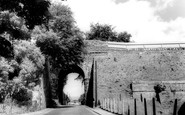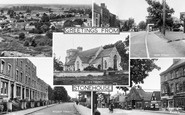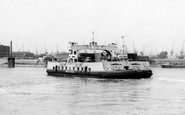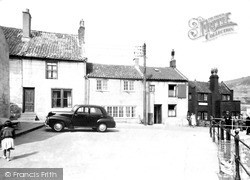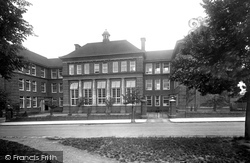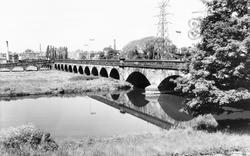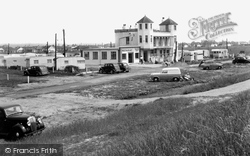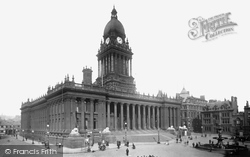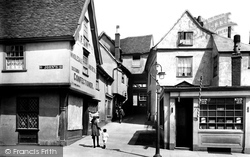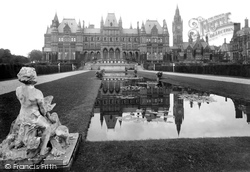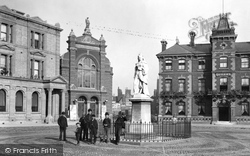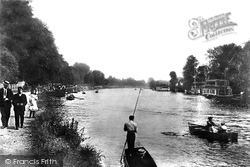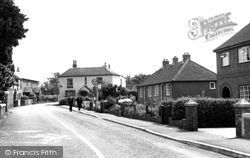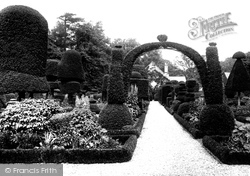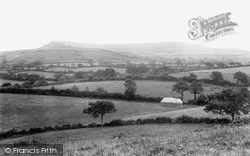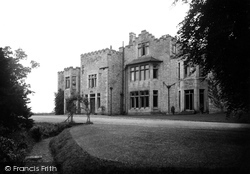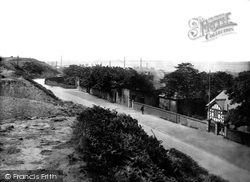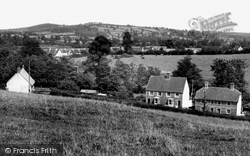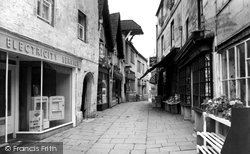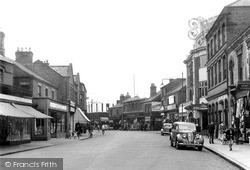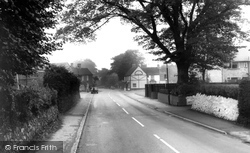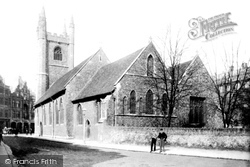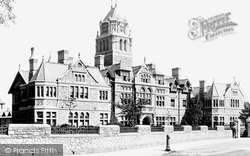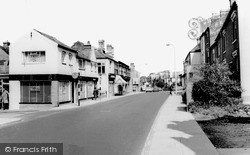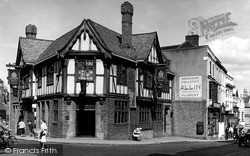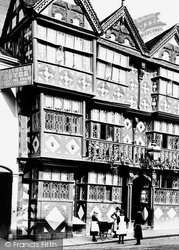Places
Sorry, no places were found that related to your search.
Photos
5 photos found. Showing results 781 to 5.
Maps
83 maps found.
Books
Sorry, no books were found that related to your search.
Memories
1,127 memories found. Showing results 391 to 400.
Growing Up In Bletchley From 1953 Onwards
My parents moved to Bletchley from London early 1953, they first lived in St George's Road before moving to 35 St John's Road when I made my appearance shortly after Christmas. So much has changed since ...Read more
A memory of Bletchley in 1953 by
The Arch
I used to live just around the corner from where this photo was taken in a place called The Crescent. Next door lived Stan Bowen on one side and Billy Comer (the fruit shop owner) on the other. Tommy Lloyd and Mr Rosser (can't remember his ...Read more
A memory of Ebbw Vale in 1953 by
Living At Model Farm
The Edwards family lived at Model Farm from 1953 to 1957. We went to Chinnor School, my brother Stuart went to Lord Williams, Thame. My mother Phyllis started 1st Shirburn & Luknor Brownies and was Captain of 1st Watlington ...Read more
A memory of Shirburn in 1953 by
Maesteg 1953 1971
I was born in Ivy House - first on the right in Talbot Terrace. My sister Sally now lives in the same street. I don't remember much before four and half years of age. I lived in that house with my grandfather, Demetrie Cambettie ...Read more
A memory of Maesteg in 1953 by
Boyhood Memories From 1952
It was around this time that the tram lines were taken up from Sunderland Road in Gateshead. The men stored the old lines in Somerset Street and Devonshire Street. As boys we would dig up the tar from around the streets ...Read more
A memory of Gateshead in 1952 by
Town Hall Roundabout
Living in Watford from the early 1950's, I well remember the Town Hall roundabout before they moved it. Can't recollect whether it was nearer or further away. I can recollect, not far from a pub called the OBH, or almost opposite ...Read more
A memory of Watford in 1952 by
Childhood 1952 Onwards
I think Stonehouse had something for every age growing up. Brownies, cubs, scouts, and guides. A youth club and a coffee bar. Always somewhere to explore, the canal, Doverow for sledging, the brickworks and always scrogging ...Read more
A memory of Stonehouse in 1952 by
Hill Street Penybont
I used to visit my grandmother - who lived on the aptly named Hill Street - throughout my childhood. My Gran was Ruth Robbins (nee James) who lived all her life in Hill Street, two of her daughters and their families also ...Read more
A memory of Abertillery in 1952 by
A Day Out To Woolwich
During the early years after the Second World War my mother would take me to Woolwich as a special treat. I was about 8 year old then. We would catch the 696 trolleybus from Dartford market and arrive at the Woolwich Arsenal ...Read more
A memory of Woolwich in 1952 by
All Things Bright And Beautiful
I remember lots of the names on the memory of Horton Heath. My grandparents were the Craggs and lived at Horton Heath as well. I went to school in Fair Oak. It was a long walk from Horton Heath. I ...Read more
A memory of Fair Oak in 1952 by
Captions
1,233 captions found. Showing results 937 to 960.
The call of the sea must have been too much for him, for within a year he had left to go to Whitby and embark on what became a famous career.
This building, next door to the gallery and library, is much the same today as it was in the early 1920s.
The 32-arch, 470-yard-long bridge of character was built in 1864 to replace a medieval crossing of the Trent's flood plain, which featured in the Civil War during 1643.
This photograph clearly illustrates the flatness of much of the reclaimed land that forms the island and which the sea attempted to reclaim in the devastating floods of 1953.
When Leeds town hall was opened by Queen Victoria, the streets were lined with palm trees and triumphal arches.
Much has changed hereabouts, and the dual-carriage- way southern bypass, Southway, is a mere 50 yards to the south.
Much of the hall and the railway has been demolished.
This is very much an archive photograph, for only the bank on the left survives from 1890: Queen Victoria's statue, commemorating her Golden Jubilee of 1887, was moved to the abbey park in 1946, while
A little further downstream, just through the railway bridge, the view down river from the Staines bank has changed; now there is extensive housing development on both banks, much fortunately still hidden
This scene has not changed much since the picture was taken; we may be thankful that a bypass routes most traffic past the village.
Beaumont trained at Versailles and was in much demand, but spent the last 40 years of his life working for James Bellingham at Levens Hall.
The view is north-eastwards from Spyway Road over Chaffins Copse (centre), and seems to have been taken as much for the neatly thatched haystack as for the general view.
This much later building is the principal house in Henllan; here we see it standing rather sombrely waiting for some social occasion to bring it to life.
Much of the stone from the quarries used to be taken to Weston along linking tunnels which pass beneath Weston Road. These were later to be used as air-raid shelters during the Second World War.
In recent times the village gave a name to the much-loved Dorset folk-singing group the Yetties.
The 15th-century arched doorway (centre left), once entrance to the town jail, is worth a look.
The Empire Cinema dominates to the right of the picture, next door to the arched entrance to the Telford Library.
The church stands halfway up a hill overlooking the village rooftops and contains a large and impressive Norman font.The chancel arch is 13th-century, and the church contains several memorials to
In those days it was still very much a village.To the north of the church were the remains of a motte, the village was served by the early Georgian church of St Mary and St Margaret, and nearby
It has some Norman work, an east end with lancet windows of about 1200 and much other medieval fabric.
Replacing much smaller and increasingly inadequate local facilities dating back to the 1830s, the requisite funds came in from across the social spectrum.
This photograph shows a similar view to O51014, but much has changed in the intervening five years.
The 'new' Mitre Inn looks much the same today as it did in 1955. It is worth a close look to appreciate the carvings on the beams and the grapevine design on the square drainpipes.
It is generally agreed by those outside the profession that lawyers charge too much. Here is the evidence. This house was built by a lawyer in the early 1600s.
Places (0)
Photos (5)
Memories (1127)
Books (0)
Maps (83)



